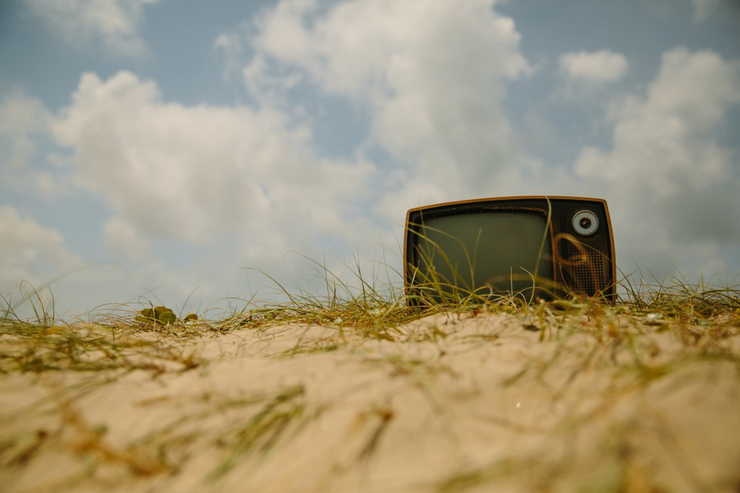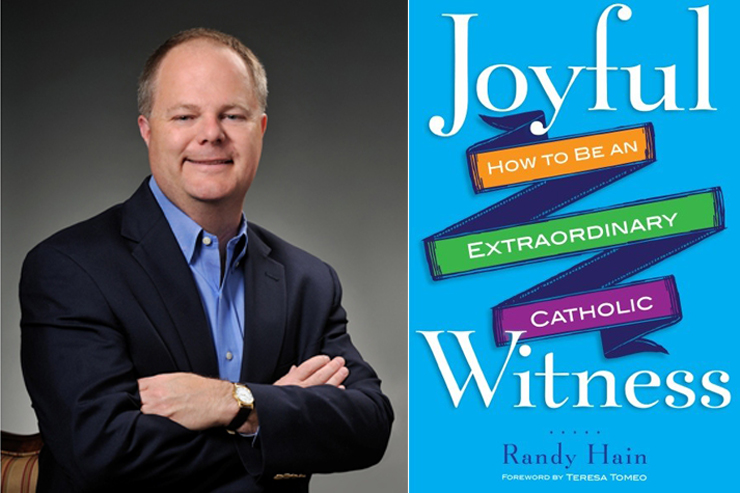 The other day I was listening to Catholic radio, and they were discussing how the rise of assisted suicide will especially target the poor, for whom death will be cheaper than medical care. After the show went off and I changed the channel, the first story I heard teased on the mainstream news station was about a couple who cloned their dog—twice—to the tune of $100,000.
The other day I was listening to Catholic radio, and they were discussing how the rise of assisted suicide will especially target the poor, for whom death will be cheaper than medical care. After the show went off and I changed the channel, the first story I heard teased on the mainstream news station was about a couple who cloned their dog—twice—to the tune of $100,000.
I wanted to pinch myself. Does anyone look around and wonder what has happened to us? We have the money to clone our pets but not care for the poor. Our lawmakers want to ignore atrocities fit for Nazi Germany happening in local Planned Parenthood clinics, and then wonder why kids are using guns to express themselves.
One phrase Pope Francis continues to return to is that we live in a “throwaway culture.” That’s really what his last encyclical was about—not climate change, like you might have heard on the news. It was much bigger than that. He was writing about the way we relate to the world, and he rightly condemned our throwaway culture. It touches not just how we treat the earth, but also how we treat our neighbor and even ourselves. We act like everything around us is expendable and replaceable and ours to use as we please. In Laudato Si, Pope Francis reminded us the earth is the only one we have, our neighbor isn’t there for us to use, and we aren’t free to define things however we see fit.
Towards the beginning of the encyclical he wrote, “Pope Benedict asked us to recognize that the natural environment has been gravely damaged by our irresponsible behavior. The social environment has also suffered damage. Both are ultimately due to the same evil: the notion that there are no indisputable truths to guide our lives, and hence human freedom is limitless. We have forgotten that ‘man is not only a freedom which he creates for himself. Man does not create himself. He is spirit and will, but also nature.’ With paternal concern, Benedict urged us to realize that creation is harmed ‘where we ourselves have the final word, where everything is simply our property and we use it for ourselves alone. The misuse of creation begins when we no longer recognize any higher instance than ourselves, when we see nothing else but ourselves’” (Pope Francis, Laudato Si, 6).
See, the “throwaway culture” means more than just that I throw my toaster away when it stops working. It means that the earth, my neighbor, and my own self are here for me, and freedom means I can choose to do what I want with them.
It means we hook up with multiple partners, with no thought of marriage or family or even the mental or physical health of the other. It means we help the elderly die when they are no longer “useful.” It means we abort a baby when he has birth defects. It means I’ll determine a truth that suits me, and I’ll throw away the truth when it becomes uncomfortable for me.
At times I feel like we’ve thrown away our common sense, too. Do you ever want to look around and ask if anyone else has noticed the emperor has no clothes? I was giving a retreat recently and was wondering if I could mention things like Bruce Jenner, 50 Shades of Gray, or throuples without offending anyone or causing a fervor. To my relief, once I had the guts to voice my incredulity at the craziness of our world, everyone jumped in agreement. They seemed equally relieved that someone was willing to “judge.”
I’m tired of acting like the Emperor is wearing clothes. I’m tired of standing by while our society throws away what they deem expendable and celebrates what they judge worthy.
So what is the answer? It’s easy to get overwhelmed by the craziness of it all, and get daunted by how small we feel. How do we reverse the roller-coaster that our culture seems to be riding with glee?
I think we have to find comfort in the fact that Christ has given us exactly what he knows we can do. Remember the parable of the talents in Matthew 25? The landowner was going on a journey, and before he left he gave his servants a certain number of talents- units of money. The servants were responsible for doing something with those talents in his absence.
The landowner in that parable didn’t give any of the servants his entire estate. Christ didn’t give you the entire world to change. He gave you a place in a company, or in a family, or in a group of friends. The landowner didn’t even give all the servants the same amount of money. He gave one five talents, one two talents, and one guy only one talent.
In the same way, Christ has given each of us a certain sphere of influence. We can look around the world, listen to the radio, or surf the internet and get horribly depressed at the state of our culture. But that’s not going to change anything. Christ has given us a certain sphere in which we live and move. Maybe you’re a stay-at-home mom. Well, focus on your husband and your children. Fight the throwaway culture in your home! Maybe he has given you an elderly parent to care for. Fight the throwaway culture by caring for your parent! Maybe he has given you coworkers, or neighbors, or customers, or friends. Fight the throwaway culture by being a witness of the Gospel and preaching the truth.
We have to wake up and admit we no longer live in a Christian society. Way back in 1979 John Paul II told us,“Christians today must be formed to live in a world which largely ignores God.” We have to admit this—quite simply so that we can change it.
Change it today, in one small way, in your own sphere of influence. Don’t worry about changing the entire world. Change your world. The landowner—Jesus—knew what He was doing, entrusting you with the talent he gave you. If you bury it, like the poor slouch in the parable, you’re telling the landowner that he didn’t know what he was doing, that you can’t be trusted, and that you don’t want the task. Trust him. Don’t bury that talent. Instead, ask Him how he wants you to use it.
Together, we can change the throwaway culture. First, we must identify it. Second, we must reject it. Third, we must seek ways in our own lives, in our own sphere of influence, to change it.














